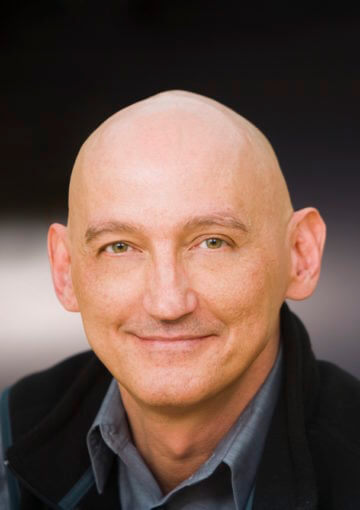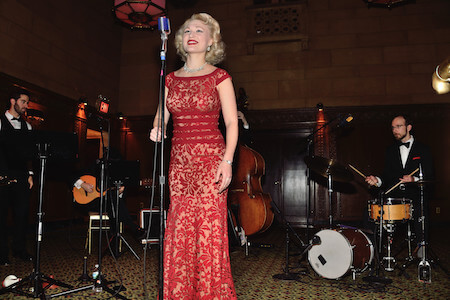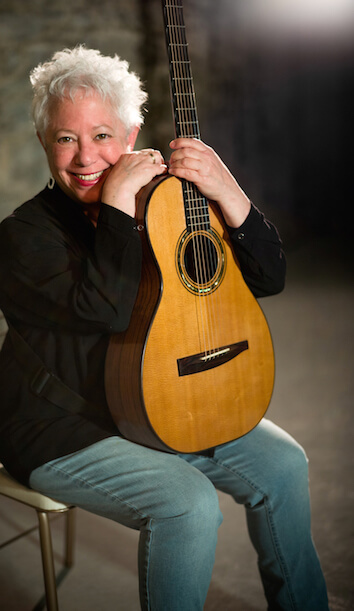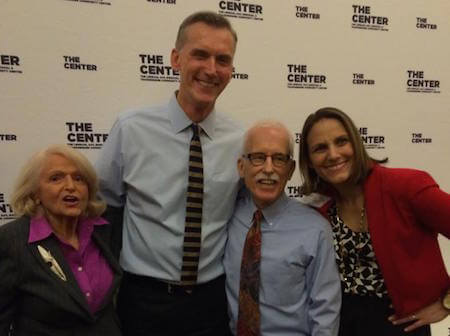Alan Bates and Oliver Reed in Ken Russell’s “Women in Love,” with a screenplay by producer Larry Kramer adapted from the D.H. Lawrence novel, will have a one-week revival in re-mastered form at the Metrograph starting December 1.| MGM/ PARK CIRCUS
“Women in Love,” Ken Russell’s ecstatic and erotic adaptation of D.H. Lawrence’s novel, is getting a weeklong re-release in a digitally re-mastered version at the Metrograph. The film, written for the screen and produced by ACT UP founder Larry Kramer, was a landmark romantic drama upon its release in 1969, in part because of its frank depictions of sex and sensuality.
Kramer was nominated for an Oscar for his screenplay, Glenda Jackson won the Best Actress Academy Award, and the film helped establish Russell, also Oscar-nominated, as a major talent. The film’s script and acting are quite strong; Kramer and the cast capture the spirit if not the letter of Lawrence’s text in the characters’ extended debates about love, sex, and marriage.
Two sisters, Gudrun (Glenda Jackson) and Ursula Brangwen (Jennie Linden) become romantically interested in best friends Rupert Birkin (Alan Bates) and Gerald Crich (Oliver Reed) when they attend the wedding of Gerald’s sister Laura (Sharon Gurney) and Tibby Lupton (Christopher Gable). Later, the sisters attend a party given by Hermione Roddice (Eleanor Bron), Rupert’s girlfriend. Showing his basic indifference to Hermione, Rupert sabotages her dance performance at the party and their relationship soon ends. As Rupert couples up with Ursula, to whom he is better suited romantically, Gerald declares his love for Gudrun when he encounters her doing a dance in a field of cattle.
“Women in Love” united Larry Kramer, Ken Russell, Glenda Jackson, Oliver Reed, Alan Bates
Kramer’s screenplay and Russell’s direction put significant emphasis on sensuality in what is also a talky film. Gerald skinny-dipping and Rupert walking naked through the woods and fields convey the men’s earthiness and comfort with their bodies. The film also oozes eroticism as Ursula and Rupert make love in the woods and during a scene of them naked, running toward each other that Russell films with his camera turned 90 degrees.
The most memorable and remarked upon scene in the film, however, is one of breathtaking homoeroticism, where Rupert and Gerald engage in a nude wrestling match. The men’s Japanese-style grappling in front of a fire is their affirmation of their mental, spiritual, and physical bond. They “swear to love each other implicitly,” that pledge explained in several conversations about “the finality of love” and the possibility that male friendship can be eternal.
The characters weigh other philosophical questions arising out of modernity, including whether marriage is an appropriate way to live, if men should be lovers or husbands and women mistresses or wives, and about the virtue of “living mechanically” versus acting on impulse. Early in the film, one character declares he does not see much love in humanity and doesn’t believe in it anyway. Even Rupert’s speech about how to eat a fig — sensually or in a more vulgar fashion — emphasizes the characters’ preoccupations with matters of eroticism and sexuality.
“Women in Love” is a dense film, and also an intelligent one one, provoking audiences to identify with the characters as they struggle to define their positions on love, sex, and marriage. Dramatic tension emerges when Rupert’s spiritual intimacy with his ex, Hermione, causes Ursula jealousy. Likewise, the relationship between Gudrun and Gerald becomes complicated when she meets Loerke (Vladek Sheybal), a gay man, during a trip to the Swiss Alps. Gerald soon becomes jealous and angry, prompting the film’s emotional climax.
Russell, whose career from “Women In Love” became increasingly over-the-top, certainly includes some excessive moments here, such as Gudrun’s interpretive dance in the forest. For the most part, though, he exercises restraint. George Delerue’s score may overemphasize the emotional moments, but overall the film is quite elegantly made. Billy Williams, Oscar-nominated for his cinematography, bathes the film in a glorious light. The coal dust practically glistens on the faces and bodies of the Yorkshire miners, while the sequences in the Swiss Alps capture the snowy wonders of the landscape. Williams also conveys the warmth of the bedrooms the characters inhabit as well as the beauty of their bodies.
The performances by the four leads are uniformly superb. Jackson is the standout as a fiercely intelligent woman who demands more from her lover. The bond between Bates and Reed is palpable, their scenes together certainly the highlight of the film. Both actors express their characters’ thoughts with conviction. As Ursula, Linden is charming, even when being petulant.
In support, Bron is the epitome of pretentious, while Sheybal makes a strong impression as Loerke.
For viewers who have not seen “Women in Love,” this re-release is a perfect opportunity to experience this powerful, lusty film on the big screen. And for anyone who has not seen the film in a while, it certainly rewards another look.
WOMEN IN LOVE | Directed by Ken Russell | MGM/ Park Circus | Opens Dec.1 | Metrograph, 7 Ludlow St., btwn. Hester & Canal Sts. | metrograph.com



































